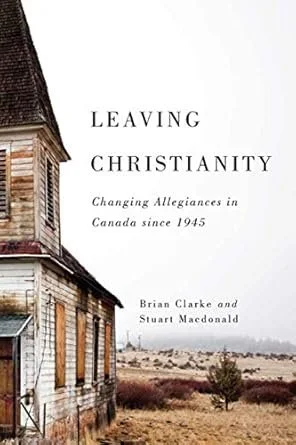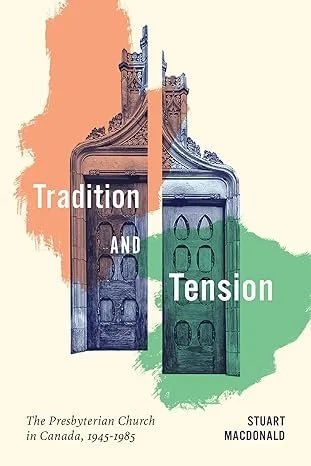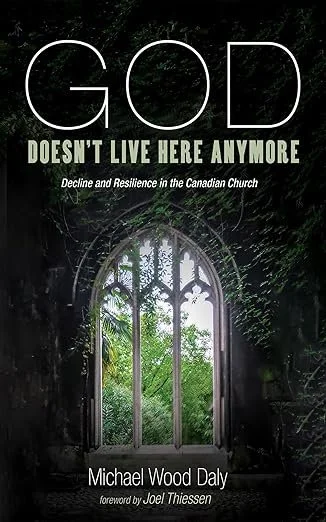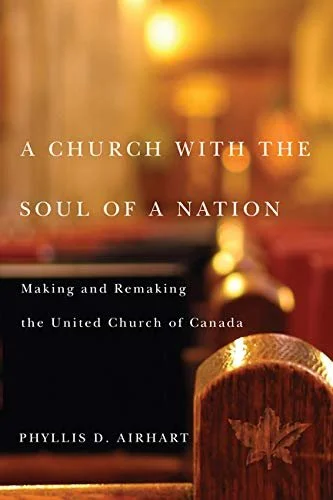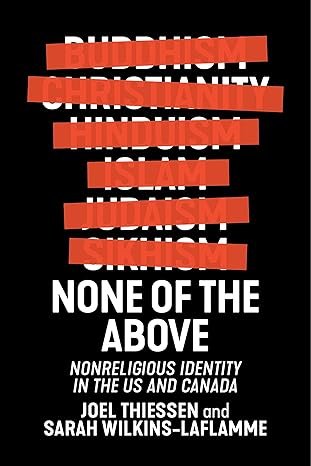Understanding the Canadian Church - A Reading List
If you’re the kind of leader who likes to dig deeper—who finds clarity through books, research, and reflection—this list is for you. We’ve gathered a few recent and insightful titles that speak directly to the Canadian church: where we’ve been, where we are, and where we might be heading.
Leaving Christianity: Changing Allegiances in Canada since 1945 | Stuart Macdonald & Brian Clarke | 2017
Canadians were once church-goers. During the post-war boom of the 1950s, Canadian churches were vibrant institutions, with attendance rates even higher than in the United States, but the following decade witnessed emptying pews. What happened? In Leaving Christianity Brian Clarke and Stuart Macdonald quantitatively map the nature and extent of Canadians’ disengagement with organized religion and assess the implications for Canadian society and its religious institutions. Drawing on a wide array of national and denominational statistics, they illustrate how the exodus that began with disaffected baby boomers and their parents has become so widespread that religiously unaffiliated Canadians are now the new majority. While the old mainstream Protestant churches have been the hardest hit, the Roman Catholic Church has also experienced a significant decline in numbers, especially in Quebec. Canada’s civil society has historically depended on church members for support, and a massive drift away from churches has profound implications for its future. Leaving Christianity documents the true extent of the decline, the timing of it, and the reasons for this major cultural shift.
Blessed are the Undone: Testimonies of the Quiet Deconstruction of Faith in Canada | Angela Bick & Peter Schuurman | 2024
Canadian Christians frustrated with the Church have come ‘Undone’ and are leaving politely, almost apologetically, in what this book dubs a Quiet Deconstruction. Blessed are the Undone asks: what aspects of faith are being questioned, and why?
Weaving in church history, cultural analysis and their personal stories, Bick and Schuurman use canoe camping to illustrate the twists and turns of the spiritual journey. Whether you feel like you’re up the creek without a paddle when it comes to faith, or if people you love have lost their bearings, this book is for you.
WONDERING WHAT ALL THE ‘DECONSTRUCTION’ TALK IS ALL ABOUT?
This book neither condemns nor condones the trend of those deconstructing their faith. It seeks to describe and document the Canadian “deconstructing faith” scene while also providing a theological and sociological frame through which to understand it. Provocative, critical, fair, and focused on Canadian concerns, this book opens a window of well-researched appraisal.
“If the Sermon on the Mount were written today, it might say: We are blessed when we have more questions than answers. We are even blessed when the Church has let us down, when life tips our canoe, when we’re just treading water, when we have no one to talk to, when we run out of hope, when our faith is Undone.”
Tradition and Tension: The Presbyterian Church in Canada, 1945-1985 | Stuart Macdonald | 2025
In 1945 the Presbyterian Church was one of Canada’s largest and most culturally influential churches. This impressive standing, in the aftermath of a depression and a global war and just twenty years after much of its membership had departed to form the United Church of Canada, was a mark of the Presbyterian Church’s resilience and resourcefulness. Yet the denomination’s greatest challenges lay in the decades that followed.
Tradition and Tension explores the history of the Presbyterian Church in Canada from 1945 to 1985. In the first half of this period, the church vigorously built new congregations in the suburbs, revitalized existing congregations, and took part in the religious revival of the 1950s. It opened its doors to new ethnic communities, updated its forms of worship, and revised its structures to permit the ordination of women. These renewal efforts were not without controversy within the church, however. Amid the cultural aftershocks of the 1960s, and as membership growth stalled, arguments about who was responsible for the church’s waning influence widened the rift between modernizers and traditionalists. Their common vision was lost.
The place of religion in Canadian society changed dramatically in the postwar period. Tradition and Tension examines how the Presbyterian Church consciously sought to reflect these changes – and how it was transformed and even overwhelmed by them. Find it Here
Gutsy: (Mis)Adventures in Canadian Church Planting | Jared Siebert | 2016
In the last two decades a gutsy group of Canadian church planters have taken the plunge. They are not content to simply plant churches—they want to plant new kinds of churches. Churches that are responsive to the Canada that will be—not just the Canada that was. Joe Manafo, in his documentary “One Size Fits All?” sought to capture this movement and understand it. He filmed 19 Christian communities that represent a brave exploration of new and evolving forms of church in Canada. This book picks up where that documentary left off. In these pages you’ll hear the unvarnished truth about what it’s like to pioneer over the long haul. You’ll read both the good and the bad. The adventures and misadventures. In these pages are the seeds of our future and the principles we’ll need to get there. If you're connected with or have ever considered planting a new kind of church in the Canadian context this book is for you.
God Doesn't Live Here Anymore: Decline and Resilience in the Canadian Church | Michael Daly & Joel Thiessen | 2023
The church in Canada is in trouble. Media reports suggest that nine thousand churches are likely to close over the next ten years. The United Church of Canada reports closing a congregation a week. The Anglican Church of Canada anticipates closing its last congregation by 2040, and the Roman Catholic Church, Canada’s largest religious denomination, reports having closed one-fifth of the tradition’s 2,500 congregations.
God Doesn’t Live Here Anymore traces the story of the church in Canada from its far off historical roots in biblical times, rise to dominance in medieval Europe, role in the colonization of Canada, strained relations with Canada’s First Nations, twentieth-century prominence, and the church’s dramatic decline and loss of influence entering the twenty-first century.
Wood Daly pulls no punches in calling the church to accept responsibility for its own decline, while maintaining hope that resurrection is still possible. The church, as Canadians may know it, might disappear, but for Christians death has never been the end of the story.
The United Church of Canada: A History | Don Schweitzer | 2011
From its inception in the early 1900s, The United Church of Canada set out to become the national church of Canada. This book recounts and analyzes the history of the church of Canada’s largest Protestant denomination and its engagement with issues of social and private morality, evangelistic campaigns, and its response to the restructuring of religion in the 1960s.
A chronological history is followed by chapters on the United Church’s worship, theology, understanding of ministry, relationships with the Canadian Jewish community, Israel, and Palestinians, changing mission goals in relation to First Nations peoples, and changing social imaginary.
The result is an original, accessible, and engaging account of The United Church of Canada’s pilgrimage that will be useful for students, historians, and general readers. From this account there emerges a complex portrait of the United Church as a distinctly Canadian Protestant church shaped by both its Christian faith and its engagement with the changing society of which it is a part.
A Church with the Soul of a Nation: Making and Remaking the United Church of Canada | Phyllis Airhart | 2013
"As Canadian as the maple leaf" is how one observer summed up the United Church of Canada after its founding in 1925. But was this Canadian-made church flawed in its design, as critics have charged? A Church with the Soul of a Nation explores this question by weaving together the history of the United Church with a provocative analysis of religion and cultural change. Find it Here
Religion, Spirituality and Secularity among Millennials: The Generation Shaping American and Canadian Trends | Sarah Wilkins-Laflamme | 2022
This book explores the world of religion, spirituality and secularity among the Millennial generation in the United States and Canada, with a focus on the ways Millennials are doing (non)religion differently in their social lives compared with their parents and grandparents. It considers the influences exercised on the (non)religious and spiritual landscapes of young adults in North America by the digital age, precarious work, growing pluralism, extreme individualism, environmental crisis, advanced urbanism, expanded higher education, emerging adulthood, and a secular age. Based on extensive primary and secondary quantitative data, complemented with high-quality qualitative research, including interviews and focus groups, this book offers cross-national comparisons between the United States and Canada to highlight the impact of different social environments on the experience of religion, spirituality and secularity among the continent’s most numerous generation. As such, it will appeal to scholars of religion and sociology, with interests in religious and societal change as well as in religious practice among young adults.
None of the Above: Nonreligious Identity in the US and Canada | Joel Theissen & Sarah Wilkins-Laflamme | 2020
Almost a quarter of Canadian and American adults are nonreligious, while youth are even more likely to identify as such. None of the Above explores the growing phenomenon of these "religious nones" in North America. Who are they, why and where is this population growing, and what impact are they having on today's societal and political trends?
While the impact of secularism in both Europe and the United States has received much attention of late, little work has been done in Canada. In None of the Above, two Canadian scholars set about collecting current data in order to understand how a nonreligious identity impacts daily life in Canada, with comparisons to those living in the US. Though they find similarities, they also find key differences. With more nonreligious people living in Canada than in the US, the authors suggest that a growing divide between religious and nonreligious populations could engender a greater distance in moral and political values and behaviours than ever before.

